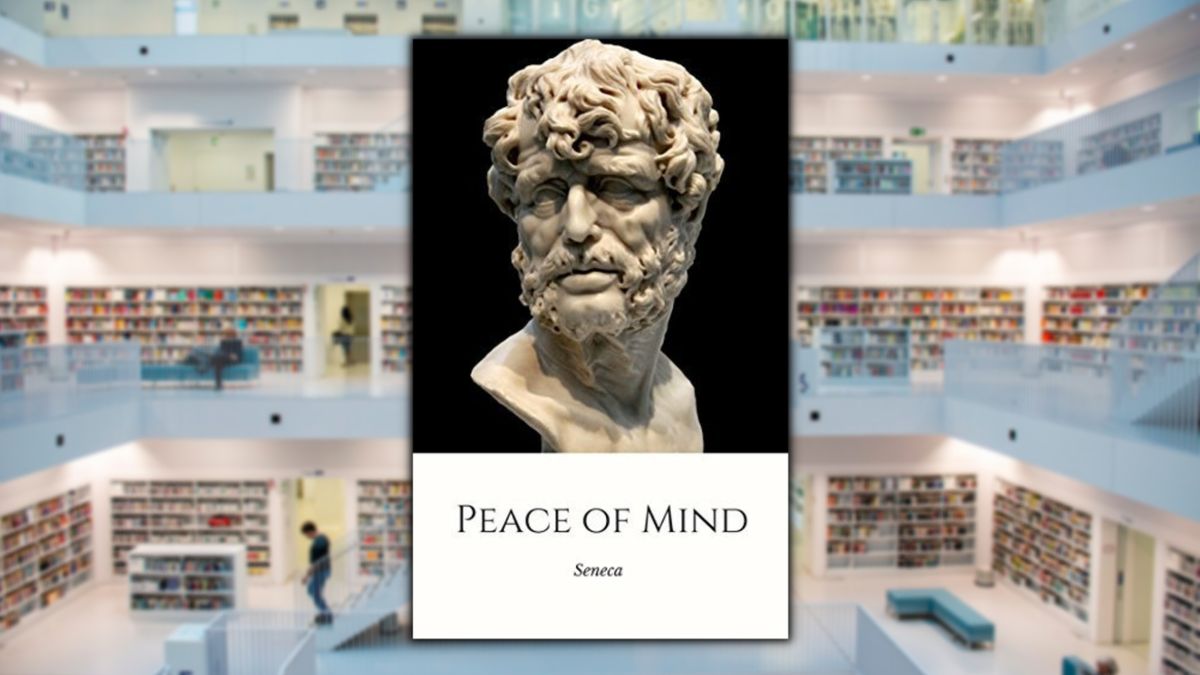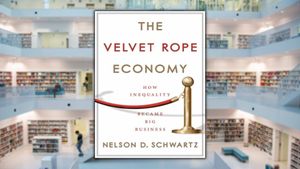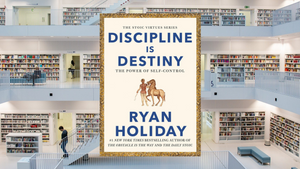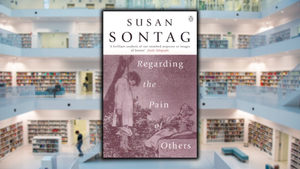
This Book is For:
*People who are looking for guidance, timeless wisdom, and effective strategies for dealing with a complex, sometimes tragically unfair world that hasn't changed in more than 2,000 years.
*Students of philosophy and history who are interested in learning about one of the greatest examples of a real person who actually lived the truth of their philosophy until the very end, and who embodied the noblest and most virtuous qualities that a human being can ever aspire to emulate.
*Anyone who's going through a rough time right now, and who may have lost hope once before, but who nevertheless still believes that it's not over until it's over.
*Everyone who may be worried about the future or harboring regrets about the past, and who is looking for specific mental tools and ways of thinking that will help them find peace, calm, and equanimity no matter what the circumstances.
Summary:
“What you desire, to be undisturbed, is a great thing, nay, the greatest thing of all, and one which raises a man almost to the level of a god. The Greeks call this calm steadiness of mind euthymia, and Democritus's treatise upon it is excellently written: I call it peace of mind.”
No one who's never had to overcome any tremendously difficult challenges in their life is qualified to teach you about how to achieve peace of mind.
There's not a single person on earth who can be said to have had an "easy life" (we all encounter difficulties, suffer losses, get sick, and eventually have to face our own mortality), but Lucius Annaeus Seneca is uniquely qualified to teach us about how to claim tranquility of mind because he's been through it all.
Seneca is one of the most influential Roman Stoic philosophers, and although he became tremendously wealthy during his lifetime, he was exiled from the Empire twice (once to Egypt as a young man, and then later to Corsica), came up against many of the same kinds of challenges we all face in our lives, and was eventually ordered to commit suicide by the psychopathic dictator, Emperor Nero, whom Seneca tutored from a very young age.
Seneca had to learn early on that the world just isn't fair: good intentions don't always lead to good outcomes, people who claim to love you will turn their backs on you when it's convenient for them to do so, great achievements often go unrecognized, and then we die at the end.
Luckily for us, it was also around the time of his exile to Corsica that he started writing, and for thousands of years, people of all ages, abilities, and temperaments have come to Seneca's works for wise, soothing, sage advice about how to take the worst the world has to throw at them and still rise to their feet again afterward.
Peace of Mind (De Tranquillitate Animi) is a dialogue written during the years 49 to 62 A.D. concerning the state of mind of Seneca's friend Serenus and how to cure him of his various mental afflictions - anxiety, fear, worry, pessimism, apathy, unhealthy desires, and despair.
Seneca is the ideal teacher because he has overcome all these incredible ordeals throughout his life and never allowed himself to be laid low permanently by pessimism or fear.
He even believed that people should have to face obstacles such as the ones he had to face, or else they would never know what they were truly capable of. Moreover, he also said that we "suffer more often in imagination than in reality," meaning that problems of the mind can be solved with the mind.
There's a lot more to say about Seneca's personal history, and Ryan Holiday believes that he's the most interesting Stoic of all. He's also open to various criticisms, as most of us are, but it's true that he lived the full truth of his philosophy and was willing to follow it all the way to the end of the path, whither it may lead.
In fact, even though he was one of the wealthiest individuals to have ever lived, he voluntarily used to sleep on the hard floor, eat the worst, least edible types of food, wear raggedy old clothes, and go without all the luxuries traditionally afforded to people of his noble position. He always remained willing to relinquish it all, and would never have tried to hold onto his material wealth if it meant sacrificing his peace of mind.
When Emperor Nero, one of the worst Roman Emperors of all, ordered Seneca to commit suicide after a failed assassination plot, Seneca did so calmly, with poise, and all the while displaying a strength of character that has served as a model for the Good Life for thousands of years.
As I've said, Seneca leaves himself and the rest of the Stoics open to various criticisms, but not so many or so severe as to devalue the worth of his advice or the desirability of keeping Peace of Mind close by at all times.
In the Key Ideas sections below, we'll discuss how we can begin to realize the true value of time and get better at investing ours; how we can bear losses bravely and leave ourselves less exposed to the vicissitudes of fate; why freedom/discipline are inextricably linked, and how there's room for both in a life well lived; and we'll learn how to laugh at misfortune and find the good in life, even when those all around us can't stop focusing on the negative.
Inside the mind is where it all begins. That's where the majority of our work can and must be done.
We don't see the world as it is, but as we are. So it makes sense to clean and maintain the "viewing window" through which we experience life, see opportunities, and observe reality. When we learn how to calm the mind, we realize that we're capable of controlling a lot more that happens in our lives as well. Seneca's beautiful little book can help us do this.
Over the last two thousand years, he's been a close friend to millions, and by reading Peace of Mind and experimenting with his philosophy, he can be ours too.
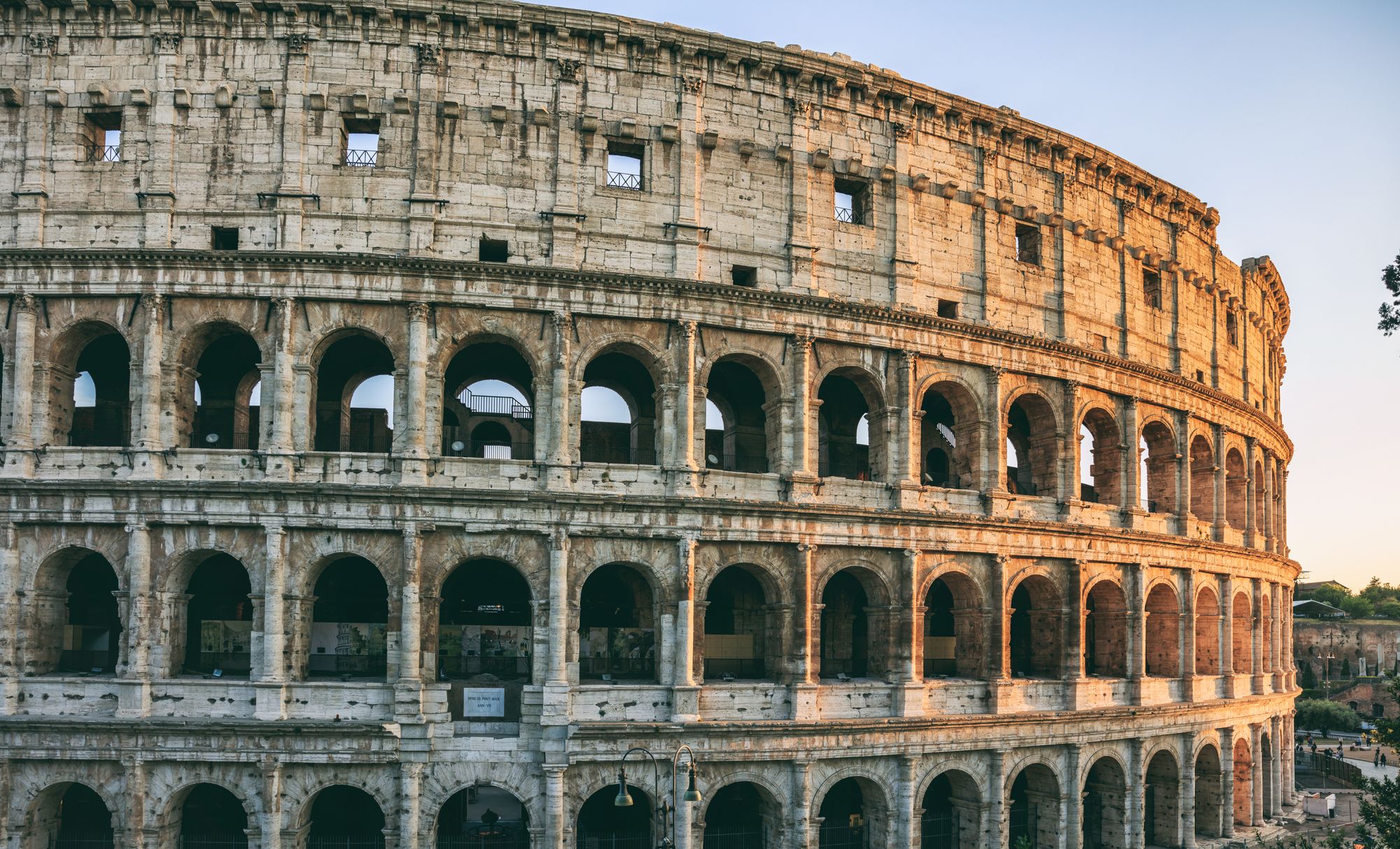
Key Ideas:
#1: Nothing Is Worth More Than This Day
“No one that will give me no compensation worth such a loss shall ever rob me of a day.”
-Serenus
Anyone who ever says "It's only five minutes" doesn't understand the true value of time. It's never "just" an hour, a minute, or even a second. According to Serenus in the quote above, we should allow no one to rob us of a single day who cannot afford to give us something at least as priceless in return.
In his book, Die with Zero, the investor Bill Perkins reminds us that we are constantly balancing three somewhat independent resources throughout our lifespan: time, health, and money. Rarely in one human life do all three peak at the exact same time, so we always have to manage the tradeoff.
Where time is concerned, it's the only resource that can never be replaced. You can almost always make more money, and sometimes regain your health, but you can never, ever, ever replace lost time. You can't make new old friends, and this is the youngest you will ever be.
We can draw a few separate conclusions from all this. First, we might acknowledge to ourselves that we admire someone like Warren Buffett's wealth and wisdom, but he's in his nineties. Who among us would willingly trade places with him now?
The wildly successful entrepreneur Alex Hormozi overheard something similar that also had a deep impact on him. Currently, he runs a portfolio of companies doing more than $100M in revenue, but once, he overheard someone say a version of the following:
“When I was 20 I wanted to be a millionaire…Now that I’m a millionaire, I want to be 20.”
It made him realize that when he's 40, he’d rather be 32 (his age) with nothing, just to be 32 (again). That was a scroll-stopper for sure when I first read it.
But okay. You've read the Serenus quote. You've read the Alex Hormozi quote. You've heard what Bill Perkins had to say. You probably agree that your time is insanely important and needs to be protected at all costs. Are you going to live as though this is true? Are your actions going to be aligned with what you profess to believe about the value of time? When will you start living as though you believe it?
It's a common refrain among the Stoics that we shouldn't fear death; rather, we should fear never beginning to live. The best among them lived each moment as though it were a wet towel: they acted as though their desperate, dying wish was to drain as much life, joy, and happiness from it as they possibly could, and this attitude never left them for as long as Fortune allowed them to grace the surface of this beautiful green Earth.
When are you going to start living like that? Will it be tomorrow? Is tomorrow coming? Or will you squeeze the life out of that wet towel NOW, as though your life depended on it? Because it does.
Of course, you can just as easily drive yourself crazy consciously trying to live every single moment intensely, and constantly stress yourself out wondering if you're actually living as "hard" as you can. Nobody is advocating that.
But a life is a terrible thing to waste, yours especially, and if someone else is demanding part of your one and only life and not offering you appropriate compensation for it, you have to wonder what kind of value you're actually placing on your time - or your life.
#2: Nothing I Have Lost Belonged to Me
“We ought at any rate to diminish the extent of our property, in order to be less exposed to the assaults of fortune: those men whose bodies can be within the shelter of their armor, are more fitted for war than those whose huge size everywhere extends beyond it, and exposes them to wounds.”
It's said that back in the 4th century BCE, the Cynic philosopher Crates of Thebes suffered the loss of all of his wealth when his house burned to the ground, at which point he had only this to say:
"I have lost nothing; I carry all my possessions with me."
There are similar versions of that story attributed to various Stoic philosophers, but it has always stood out to me as a perfect example of the fact that everything we "possess" is simply on loan from the universe.
This applies to our wealth, our possessions, our family and friends, and even our physical bodies. At best, we are borrowing those things from Fortune (or God, Nature, the Universe, etc.), and at some point, we will be asked to return them.
According to the principles of Stoic philosophy, we must do this willingly and honorably, if not happily, and not complain about the unfairness of losing something that never really belonged to us in the first place. We knew the rules of the game the whole time: life is temporary, and everything gets thrown back into the center of the table at the end of our final breath.
Rather than despair over this eventuality, we can see it as an opportunity to embody strength of character and virtue, to act in such a way that becomes a human being - to take it on the philosophical chin, and express gratitude that we were able to possess those things for as long as we did, instead of complaining about losing them.
I also love the advice that Seneca gives above about reducing our "harm surface area," so to speak. In the same way that if you have a smaller body you leave less of yourself exposed to the weapons of your enemies, if you own fewer possessions you have less to lose.
There's nothing intrinsic to having money that is necessarily a bad thing; rich or poor, a person's wealth says virtually nothing about their character. But there's something to be said for the person who's just as happy with little as they are with a lot, and who can willingly relinquish the wealth that was loaned to them when the time comes. For as Seneca says:
“How far happier is he who is indebted to no man for anything except for what he can deprive himself of with the greatest ease!”
#3: Discipline Equals Freedom
“Yet moderation is wholesome both in freedom and in wine.”
It sounds paradoxical at first, but practicing self-discipline can open up much greater freedom later on, and living with too much freedom without balancing it with at least reasonable amounts of self-discipline will lead you stumbling into a life you can barely stand.
Seneca's insight is that the more we discipline our own minds, the more we allow mental freedom to become our default state of being. It's the mind that's susceptible to being yanked around by all these addictions and negative influences that's not free.
Just like you wouldn't drink 8 bottles of wine at some party (right??), you also wouldn't want to give yourself unlimited freedom either, because that disorienting level of freedom often comes with devastating consequences. The "freedom" to eat 6 hamburgers a day will imprison you inside a hospital room decades earlier than if you had exercised the discipline to control your desires.
You can furnish plenty more of your own examples, but the bottom line is that a life of freedom, joy, and purpose is built on a foundation of unwavering discipline and commitment.
Once you fully commit to something, such as a marriage (if that's right for you), you get to experience the freedom that comes with cementing serious (but wonderful) long-term bonds with someone who will be your best friend, and your biggest champion, for the rest of your life.
In the same way that the existence of darkness enables you to perceive light, that East creates West, that there is no "up" without a "down," discipline equals freedom, whereas total, absolute freedom often simply leads to slavery.
#4: The Laughing Philosopher
“We ought therefore to bring ourselves into such a state of mind that all the vices of the vulgar may not appear hateful to us, but merely ridiculous, and we should imitate Democritus rather than Heraclitus.
The latter of these, whenever he appeared in public, used to weep, the former to laugh: the one thought all human doings to be follies, the other thought them to be miseries.
We must take a higher view of all things, and bear with them more easily: it better becomes a man to scoff at life than to lament over it. Add to this that he who laughs at the human race deserves better of it than he who mourns for it, for the former leaves it some good hopes of improvement, while the latter stupidly weeps over what he has given up all hopes of mending.
He who after surveying the universe cannot control his laughter shows, too, a greater mind than he who cannot restrain his tears, because his mind is only affected in the slightest possible degree, and he does not think that any part of all this apparatus is either important, serious, or unhappy.”
Democritus is probably one of my favorite people in all of philosophy. And that's saying something. He was known as "the laughing philosopher" for his tendency to laugh at the absurdity of it all and the ignorance of most of the world while expounding his belief that joy is the goal of life.
Seneca references him in Peace of Mind, and Democritus is someone I have often thought of as possessing a healthy amount of that very thing.
He also probably went through a lot of shit in his life too. But the difference between him and someone like the more pessimistic Heraclitus (also referenced by Seneca) is that one refused to harbor hatred, fear, or pessimism, and the other too often let himself give in to it.
They both observed the same ridiculous, sometimes awful behaviors of their fellow human beings, and they were both exposed to the fickleness of Fortune, and yet, more often than not Democritus chose to laugh it all off and simply try to enjoy himself. While I don't recommend trying to shelter yourself from some of the harsher realities of the world, I also just want to be more like Democritus!
Actually, I am a lot like him, in that during my entire 10+ years as a nightclub bouncer, I rarely, rarely got angry or let anything get to me. And you should have heard some of the threats and insults that people used to hurl at me! The Stairway to Wisdom is a more "cultured" library of wisdom and knowledge, so I won't repeat them here. But suffice it to say, I had many opportunities to practice Stoicism!
Further on in the quotation above, Seneca points out that to mourn for the human race is to give up all hope of things getting any better and of people improving in moral character and wisdom. This is antithetical to everything I and Seneca believe about the at least partial perfectability of human beings.
Personally, I never give up on anyone, and I look for the best in people, instead of focusing on their worst defects and trying to find faults. It's not that I'm ignoring all the horrible things that people say and do to each other. I'm well aware of what goes on, and so was Seneca.
It's just that those who make up their minds to view life as a comedy will have a lot more fun than those who linger on tragedy, and the "weeping philosophers" of the world will miss multitudinous opportunities to witness the absolute best that humanity has to offer.
#5: How Not to Be Miserable Forever
“Yet it is better to accept public morals and human vices calmly without bursting into either laughter or tears; for to be hurt by the sufferings of others is to be forever miserable, while to enjoy the sufferings of others is an inhuman pleasure, just as it is a useless piece of humanity to weep and pull a long face because someone is burying his son.
In one’s own misfortunes, also, one ought so to conduct oneself as to bestow upon them just as much sorrow as reason, not as much as custom requires: for many shed tears in order to show them, and whenever no one is looking at them their eyes are dry, but they think it disgraceful not to weep when everyone does so.
So deeply has this evil of being guided by the opinion of others taken root in us, that even grief, the simplest of all emotions, begins to be counterfeited.”
You can look at this as an extension of the last Key Idea, but here Seneca is saying that commiserating over the miseries of others is to make yourself miserable as well, and that, human life being what it is, you can always find something horrible to fixate on if you look hard enough.
This brings up the question of how much we should concern ourselves with the problems, sufferings, and difficulties of others. There's a middle ground here between a Mother Theresa type and a Nero that is going to be best for most people, and if you go around feeling just awful all the time knowing that somebody, somewhere, is suffering, then you'll never be able to allow yourself to be happy.
Personally, I believe that we should take a more active interest in caring for others, especially since this doesn't come automatically for most of us. As a certain comedian once asked, "You know who cares even less about your problems than you do?" The answer, of course, is everybody, and that makes perfect sense!
We have to be able to take care of ourselves first before we can be strong for others. But again, there's a certain point at which this stance spills over into self-involvement and we need to make corrections in the opposite direction.
Lastly, I just want to point out that there are far too many people in the world, all undergoing trials and hardships, than we can ever hope to help or even adequately care about. There are now close to 8,000,000,000 people in the world. Even if we were able to learn one new person's name every minute of every day, it would take us more than 15,000 years to learn everyone's name.
Another way to look at it, of course, is that something good happens to virtually every single person on Earth, at least once a day. Thus, if you're able to be happy when good things happen to others, you've just given yourself 8,000,000,000 reasons to be happy.
#6: Society and Solitude
“Nevertheless we ought to mix up these two things, and to pass our lives alternately in solitude and among throngs of people; for the former will make us long for the society of mankind, the latter for that of ourselves, and the one will counteract the other: solitude will cure us when we are sick of crowds, and crowds will cure us when we are sick of solitude.”
I love people, but you guys tire me out, man! Sometimes I just have to retreat into solitude in order to restore my ability to enjoy the company of others and build my strength back up so I can return to society.
As I mentioned in Key Idea #4, I spent a lot of weekends working in bars, and to me, that job served the same kind of social purpose. I only worked at the bar for two nights a week (sometimes three), but it was usually the highlight of my entire week. Not many people believe me when I say that, but it's true! I loved that job, and it served as a perfect counterbalance to my hermit-like existence the rest of the week.
It happened exactly like Seneca said it would: for the entire week leading up to my "re-entry into society," pretty much all I did was read books and lift weights. Mostly by myself, although I saw people here and there. I love my solitude, but by the time Friday night rolled around, I "longed for the society of mankind."
So yes, Seneca had the right idea 2,000 years ago and it's great advice! You can learn things about yourself in silence and solitude that you never could if you were surrounded by people all day long, and vice versa. A full life includes both.
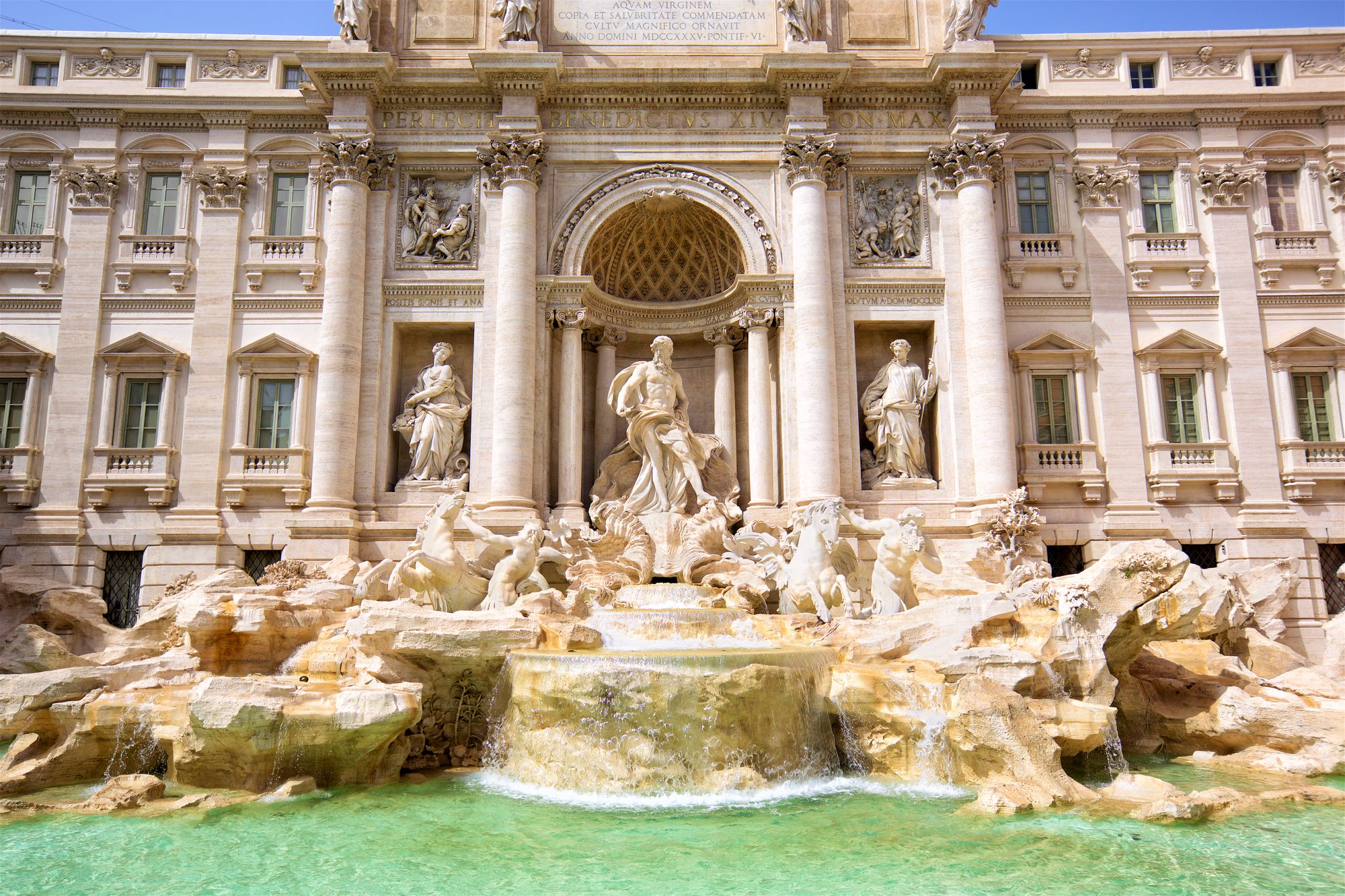
Book Notes:
“Let my mind be contained within itself and improve itself: let it take no part with other men’s affairs, and do nothing which depends on the approval of others: let me enjoy a tranquility undisturbed by either public or private troubles.”
-Serenus
“Many men would have arrived at wisdom had they not believed themselves to have arrived there already, had they not purposely deceived themselves as to some parts of their character, and passed by others with their eyes shut: for you have no grounds for supposing that other people’s flattery is more ruinous to us than our own.
Who dares to tell himself the truth? Who is there, by however large a troop of caressing courtiers he may be surrounded, who in spite of them is not his own greatest flatterer?”
-Serenus
“Men who cannot succeed themselves wish everyone else to be ruined.”
“We must limit the running to and fro which most men practice, rambling about houses, theatres, and marketplaces. They mind other men's business, and always seem as though they themselves had something to do.
If you ask one of them as he comes out of his own door, "Whither are you going?" he will answer, "By Hercules, I do not know: but I shall see some people and do something."
They wander purposelessly seeking for something to do, and do, not what they have made up their minds to do, but what has casually fallen in their way. They move uselessly and without any plan, just like ants crawling over bushes, which creep up to the top and then down to the bottom again without gaining anything.
Many men spend their lives in exactly the same fashion, which one may call a state of restless indolence.”
“Thus every mortal from himself doth flee.”
-Lucretius
“Are you not ashamed of yourself, you who gaze upon riches with astonished admiration? Look upon the universe: you will see the gods quite bare of property, and possessing nothing though they give everything. Do you think that this man who has stripped himself of all fortuitous accessories is a pauper, or one like to the immortal gods?”
“Diogenes’s only slave ran away from him, and when he was pointed out to Diogenes, he did not think him worth fetching back. ‘It is a shame,’ he said, ‘that Manes should be able to live without Diogenes, and that Diogenes should not be able to live without Manes.’ He seems to me to have said, ‘Fortune, mind your own business: Diogenes has nothing left that belongs to you.’”
“He will not complain of Fortune, but will say, ‘I thank you for what I have had possession of: I have managed your property so as largely to increase it, but since you order me, I give it back to you and return it willingly and thankfully.”
“He who fears death will never act as becomes a living man.”
“In the same way every one of those who walk out to swell the crowd in the streets, is led round the city by worthless and empty reasons; the dawn drives him forth, although he has nothing to do, and after he has pushed his way into many men’s doors, and saluted their nomenclatures one after the other, and been turned away from many others, he finds that the most difficult person of all to find at home is himself.”
“Nothing befalls the wise man which he did not expect.”
“I have now, my beloved Serenus, given you an account of what things can preserve peace of mind, what things can restore it to us, what can arrest the vices which secretly undermine it: yet be assured, that none of these is strong enough to enable us to retain so fleeting a blessing, unless we watch over our vacillating mind with intense and unremitting care.”
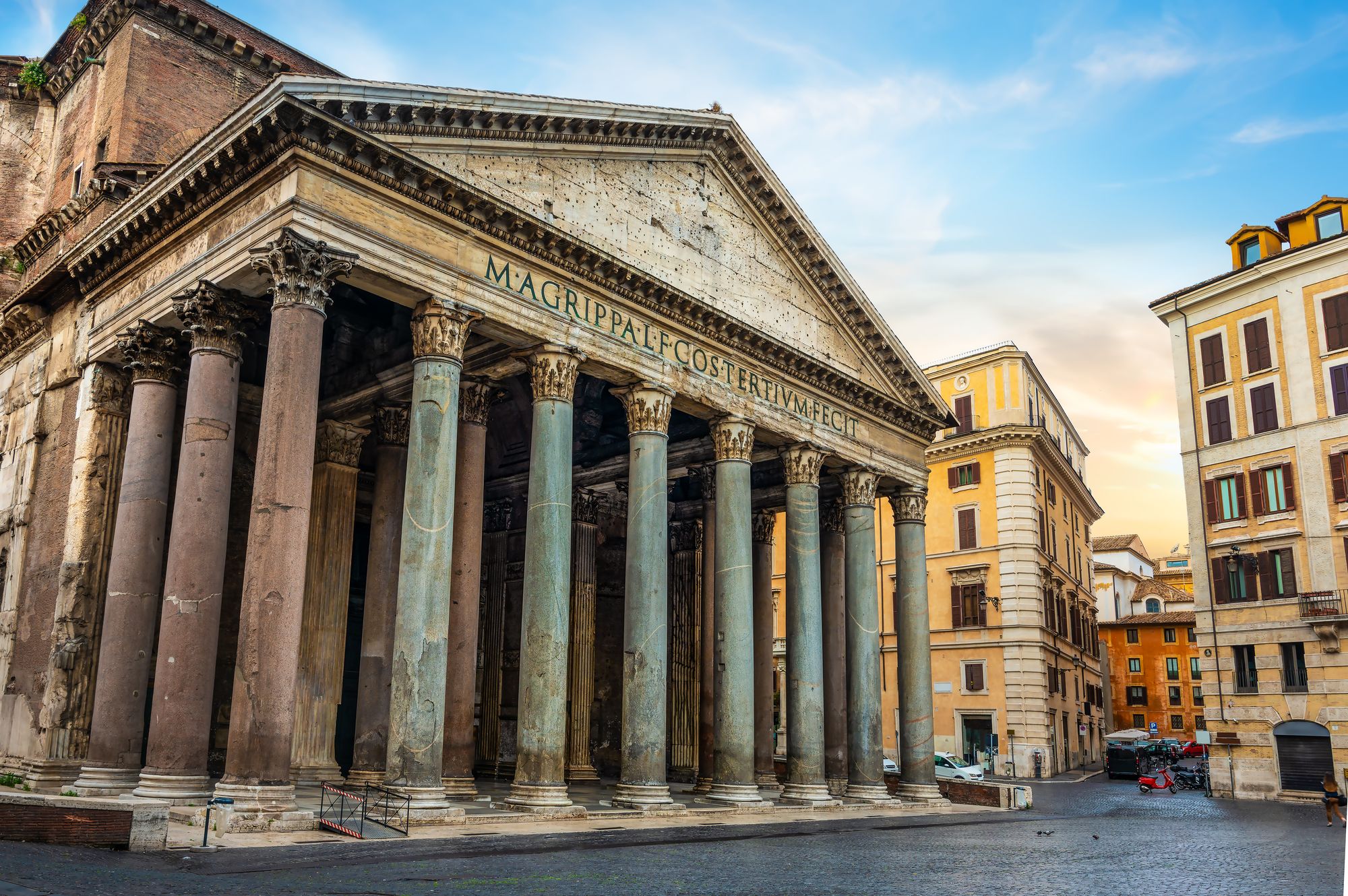
Important Insights from Related Books:
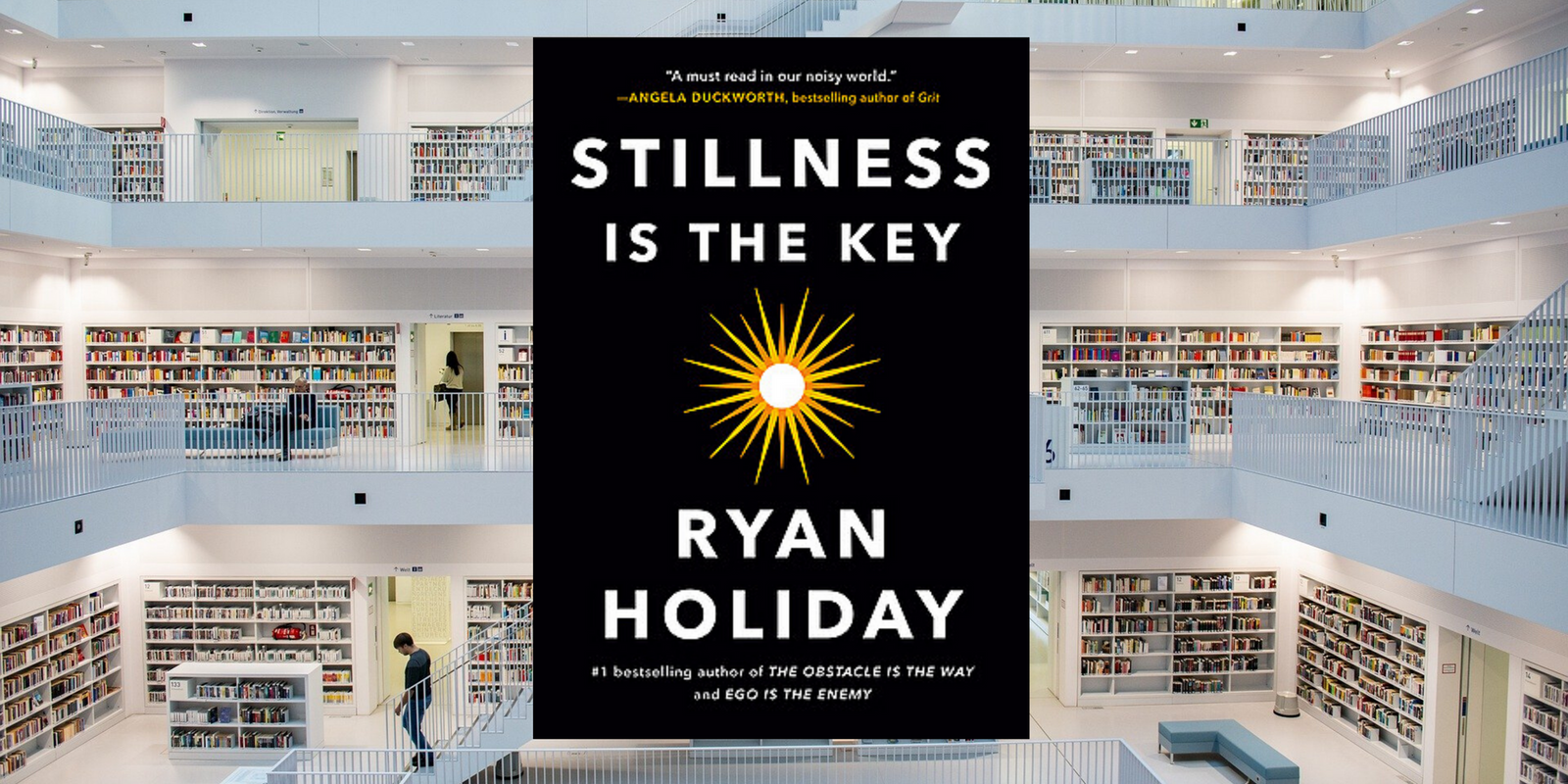
Stillness is the Key, by Ryan Holiday:
If you can tolerate enough boredom, you can achieve pretty much anything. Almost everything that’s worth achieving isn’t going to be the result of one single exciting event, but rather the sum total (or sometimes, the exponential total) of relatively unexciting actions, repeated over and over and over again until your personal summit is reached.
For example, you reach the Mr. Olympia stage by lifting the same heavy weights up and down, up and down, over and over again, day after day after day. You don’t even take them anywhere!
It’s also chicken and rice, chicken and rice, chicken and rice, until one day, in the stillness of the night, you get bored of chicken of rice...and then you cook some more chicken and rice anyway because you know that that’s what it takes to be successful in the sport of bodybuilding.
I’d even invite you to consider that boredom can actually be interesting! When you lift a weight and put it back down again, there is a universe of observable phenomena available to you, possible subjects of your attention when you put your mind inside the muscle, really feeling the contraction of every muscle and tendon you’re working, and experiencing directly the perfect, synchronous functioning of the human body doing exactly what it was designed to do.
Clearly, there’s a lot more to stillness than boredom, and indeed, whenever such a wide range of societies, belief systems, and successful individuals all converge on one idea as being of singular importance - in this case, stillness - then you know that it’s important and that you overlook its significance at your peril.
There’s so much untapped power in stillness, and this book is like a powder keg.
Through the stories of people like Confucius, Seneca, Marcus Aurelius, Thich Nhat Hanh, Nietzsche, Fred Rogers, Anne Frank, Winston Churchill - and on and on - Ryan Holiday’s book will show you that stillness isn’t just “sitting still,” or silence, but a superpower that will lead directly to self-mastery, discipline, focus, achievement, and, indirectly, to personal fulfillment.
Sample Quotes from the Book:
“The call to stillness comes quietly. The modern world does not.”
“Always think about what you're really being asked to give. Because the answer is often 'a piece of your life', usually in exchange for something you don't even want."
“Who is so certain that they will get another moment that they can confidently skip over this one?”
Read the Full Breakdown: Stillness is the Key, by Ryan Holiday
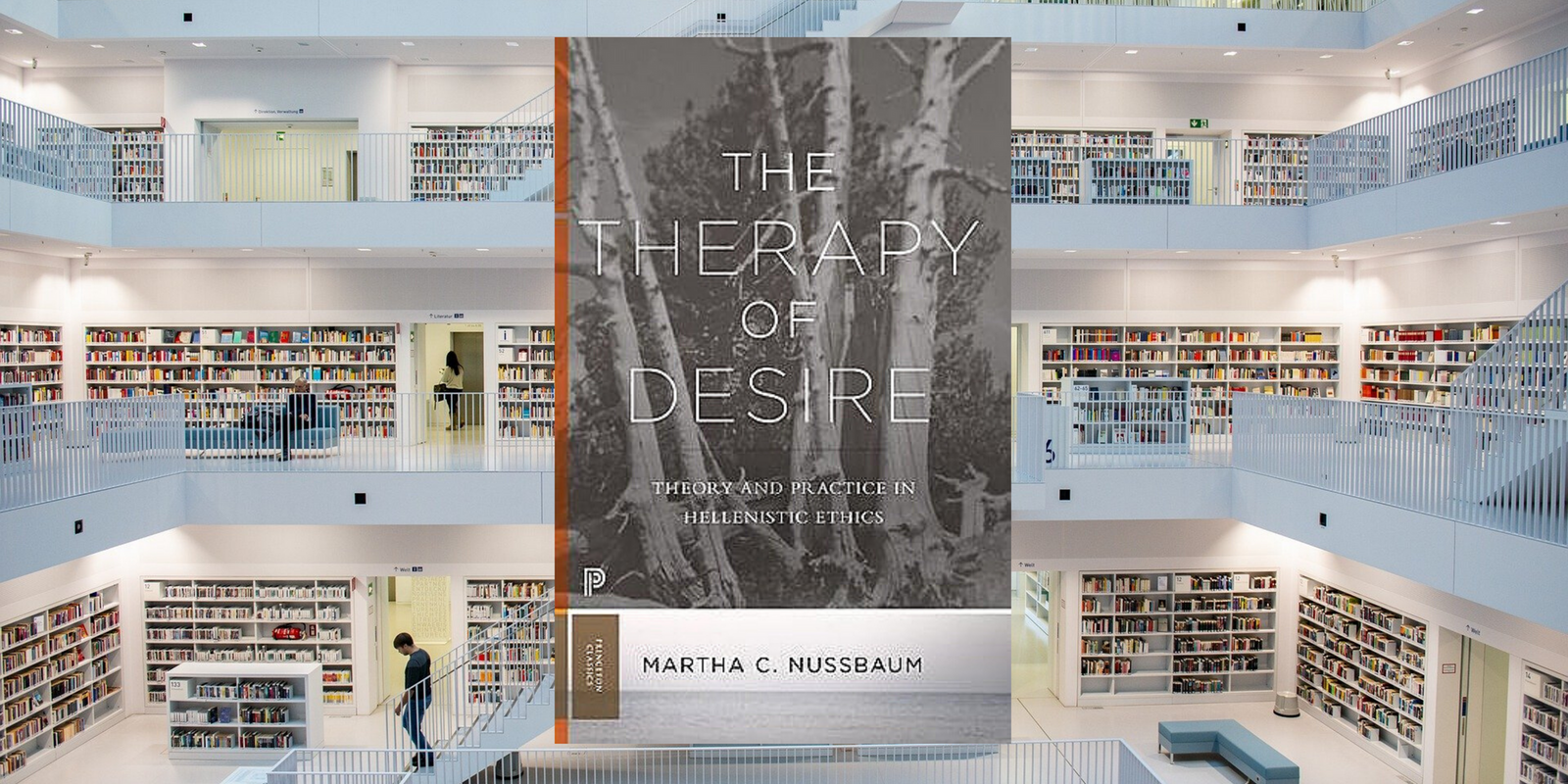
The Therapy of Desire, by Martha C. Nussbaum:
For those of you not opposed to a little bit of cognitive exertion, here’s another brilliant book by Martha Nussbaum. Among contemporary philosophers, she continues to be near the top of my list of people whose books make my life - and my thinking - demonstrably better.
She just absolutely floors me with her academic credentials, combined with her obvious passion for justice and the overall flourishing of every single member of the human race. I can tell that she cares about me, even though she’s never met me, and you’ll find that she cares about you too.
What’s also impressive is her commitment to finding the right answer, not just “being right.” She doesn’t care whether she’s had the right answer all along, or if her views are corrected and improved by others; all she’s interested in is helping human beings not to suffer. She is, in short, a hero.
In The Therapy of Desire, she examines the medical model of philosophy, based on the work of famous Epicureans, Skeptics, and Stoics, all of whom prized the kind of philosophy concerned with real beneficial effects out there in the world, the kind which improved the lives of real people in real time, instead of the more "academic" philosophy practiced today.
Essentially, the thinkers she discusses believe that any philosophy that doesn’t alleviate human suffering isn’t worthy of the name. Same as medicine which doesn’t cure what’s wrong with the body should never be called medicine.
This book also put into words something that I’ve often felt previously, namely that the value of each individual human life is infinite. The implication, of course, is that there is nothing that any of us have to “do” in order to become "worthy" of unconditional positive regard (in Rogerian terms) and nothing that we have to “become” in order to be persons of absolute value in the universe. In that respect and several others, this book changed my life.
Sample Quotes from the Book:
“If the audience for philosophy is the entire human race, not just a narrow elite, philosophical teaching and writing will have to develop many different shapes and forms, in order to reach everyone it ought to reach."
"The bold Stoic attempt to purify social life of all its ills, rigorously carried through, ends by removing, as well, its finite humanity, its risk-taking loyalty, its passionate love. Abandoning the zeal for absolute perfection as inappropriate to the life of a finite being, abandoning the thirst for punishment and self-punishment that so frequently accompanies that zeal, the education I recommend looks with mercy at the ambivalent excellence and passion of a human life."
"For we aim not to know what courage is but to be courageous, not to know what justice is but to be just, just as we aim to be healthy rather than to know what health is, and to be in a good condition rather than to know what good condition is."
Read the Full Breakdown: The Therapy of Desire, by Martha C. Nussbaum
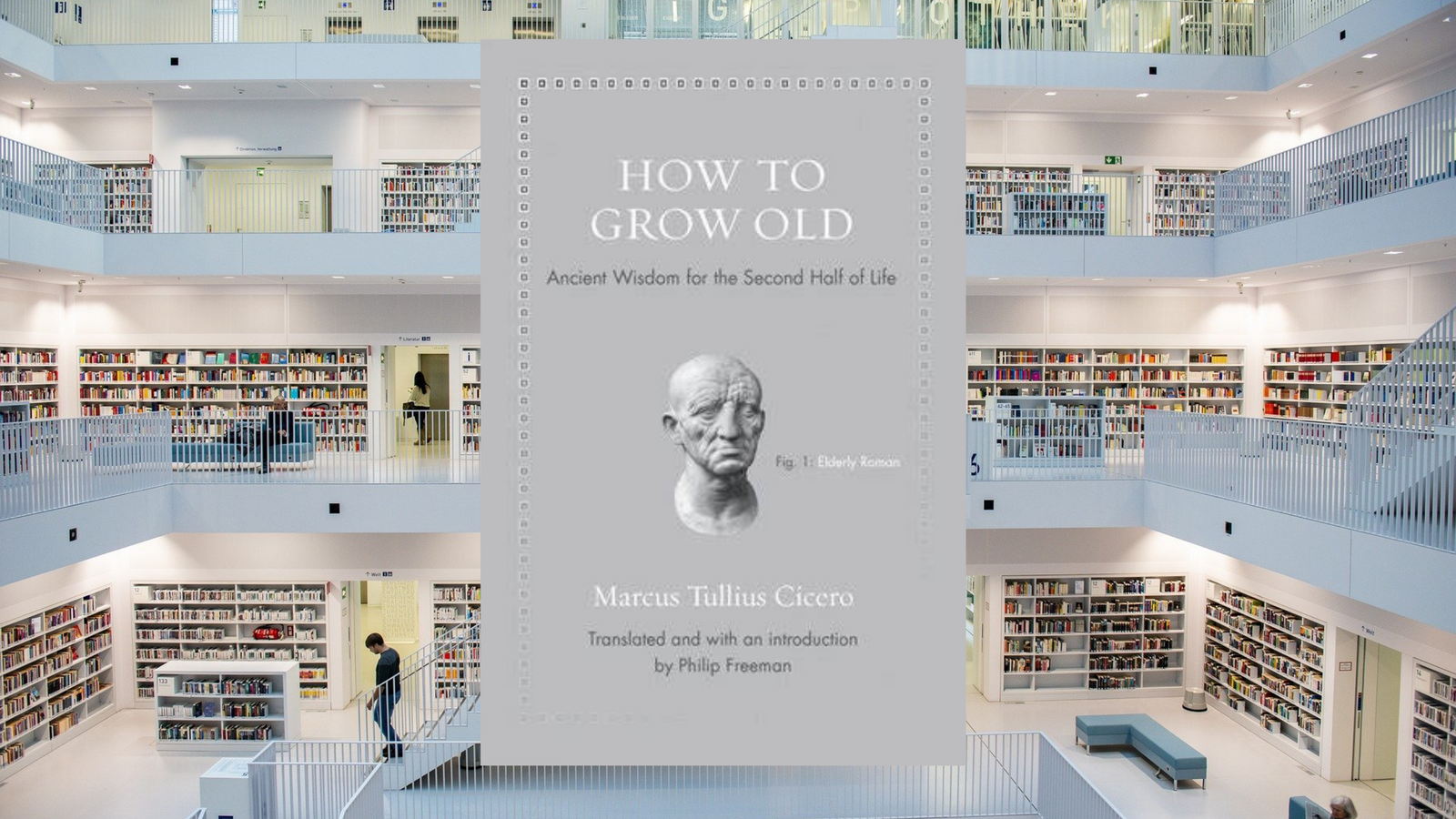
How to Grow Old, by Marcus Tullius Cicero:
For more than 2,000 years, readers have loved and kept coming back to Cicero's dialogue concerning the wonders and benefits of aging (yea, you read that right) - people like Benjamin Franklin, Thomas Jefferson, and Saint Augustine, to name a few. Michel de Montaigne even said that the book "gives one an appetite for growing old." I'm not exactly in a rush to get into my sixties, but How to Grow Old, originally titled On Old Age, has absolutely stood the test of time.
Cicero was a Roman politician, writer, and orator who lived during the chaotic years after the assassination of Julius Caesar and the power vacuum that ensued. He published the book in 44 B.C., right before being executed by Mark Antony (Cleopatra's BF) and after a long and very high-profile career as one of the leading figures of the Roman Empire.
How to Grow Old is heavily influenced by the philosophy of Stoicism, and it's staged as a dialogue between Cato the Elder, a Roman senator who lived a hundred years before Cicero, and two younger friends. Cato sees aging as a natural and inevitable aspect of the cosmos, the "final act" of the mortal play, and thus nothing to be feared.
Cicero makes the case that although we give up certain things when we get older, we also gain other things that are just as valuable - some might even say more valuable.
We lose at least some of our physical vitality and our seemingly limitless potential, but we're compensated with greater peace, tranquillity, and more time for pursuing intellectual and creative pursuits that we may never have had time for in our period of "getting and spending and striving" when we were younger.
He also explains that death becomes less terrifying in proportion to how prepared we are to meet it. Just like anything we're not prepared for can be terrifying, failing to think properly about death while we're young prevents us from critically evaluating it and preparing for it when we're older.
In all this, Cicero's main argument is that although aging is inevitable for those fortunate enough to avoid an early death, the fear of death is not inevitable, and there are good reasons why it should be abandoned.
Freedom from fear is one of Cicero's greatest gifts to posterity, and probably why this book has been so beloved for generations. Because the fear of death isn't just limited to those who have attained a certain age - it can make one's entire life a torment if it isn't faced head-on. Remove the fear of death, and you let in the love of life. As Cicero said himself:
“Wretched indeed is the man who in the course of a long life has not learned that death is nothing to be feared.”
Sample Quotes from the Book:
“A good old age begins in youth. Cicero says the qualities that make the later years of our lives productive and happy should be cultivated from the beginning. Moderation, wisdom, clear thinking, enjoying all that life has to offer – these are habits we should learn while we are young since they will sustain us as we grow older. Miserable young people do not become happier as they grow older.”
“Those who lack within themselves the means for living a blessed and happy life will find any age painful. But for those who seek good things within themselves, nothing imposed on them by nature will seem troublesome.”
“I follow nature as the best guide and obey her like a god. Since she has carefully planned the other parts of the drama of life, it’s unlikely that she would be a bad playwright and neglect the final act. And this last act must take place, as surely as the fruit of trees and the earth must someday wither and fall.
But a wise person knows this and accepts it with grace. Fighting against nature is as pointless as the battles of the giants against the gods.”
Read the Full Breakdown: How to Grow Old, by Marcus Tullius Cicero
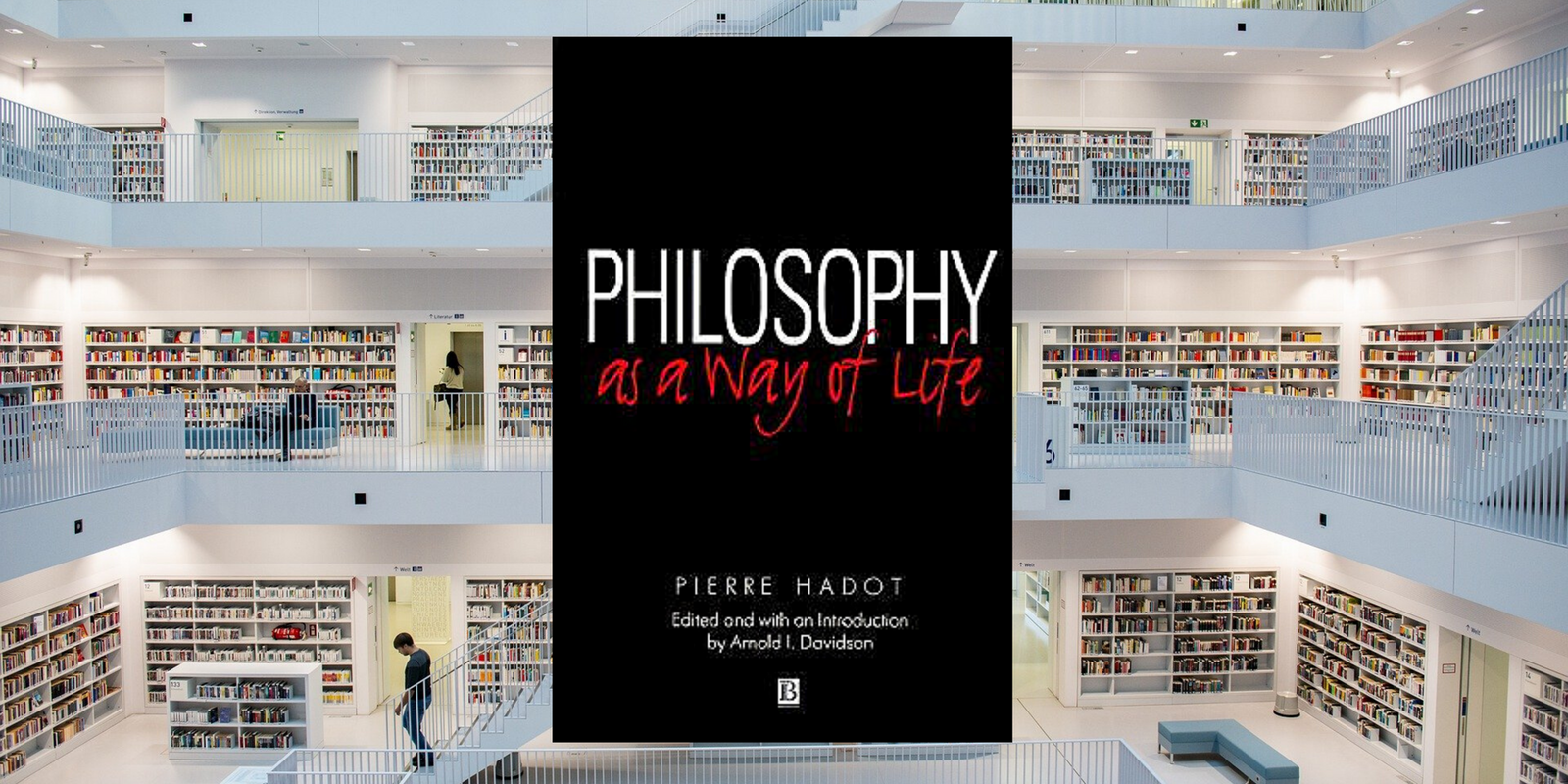
Philosophy as a Way of Life, by Pierre Hadot:
If you took a few required philosophy courses in university, hated it, and subsequently wrote off philosophy forever as “not really my thing,” then it probably wasn’t philosophy in the way it was supposed to be practiced.
Hadot’s book is about real, honest-to-goodness philosophy (a word that means love of wisdom), and it’s about real people (everyone from slaves to Roman Emperors) who used it to become mentally stronger, more joyful, less afraid, and fully alive.
I won’t say that this is an easy read because it’s not. It’s more of a philosophy textbook than something you’d bring with you to the beach, but the whole purpose of this book is to show you that philosophy’s a real, live activity, that can actually improve your one and only life.
Inside, you’ll see why people like Socrates felt that real communication with other human beings was infinitely superior to knowledge gained from books, how Marcus Aurelius used philosophy to help him run the Roman Empire without losing his mind, and how you can go from where you are now, to where you want to be.
It takes some real mental effort to get the most out of this book, but if you take a look at the sample quotes below, you’ll get a good idea of what you can expect.
Hadot references what these great philosophers actually said about how to live intensely, how to banish your fear of death, how to cherish your closest friendships, and how to make the absolute most out of this crazy experience of being alive.
Sample Quotes from the Book:
“If the whole world were to appear to mortals now, for the first time; if it was suddenly and unexpectedly exposed to their view; what could one think of more marvelous than these things, and which mankind would less have dared to believe?"
“From the point of view of death, the mere fact of existing - even if only for a moment - seems to be of infinite value, and gives us pleasure of infinite intensity."
“If man feels at home in the world as within an All, an All which is great, beautiful, noble and precious; if the pleasure of living in harmony with this All gives him a pure, free delight, then the universe - if it could be conscious of itself - would exult with joy; it would have attained its goal, and would be amazed at this summit of its becoming and its being.
After all, what good is all this profligate abundance of suns, planets, moons, stars, Milky Ways, comets, nebula, worlds in the process of becoming and which have come to be, if, when all is said and done, one happy man does not rejoice, unconsciously, in his own existence?"
Read the Full Breakdown: Philosophy as a Way of Life, by Pierre Hadot

The View from the Opposition:
No one's ideas are beyond questioning. In this section, I argue the case for the opposition and raise some points you might wish to evaluate for yourself while reading this book.
#1: A Lifeless, Life-Denying Philosophy
"Sometimes we gain strength by driving in a carriage, by travel, by change of air, or by social meals and a more generous allowance of wine: at times we ought to drink even to intoxication, not so as to drown, but merely to dip ourselves in wine: for wine washes away troubles and dislodges them from the depths of the mind, and acts as a remedy to sorrow as it does to some diseases."
This is one of the most common criticisms leveled against the Stoics, both ancient and modern, but it turns out that it's not completely accurate or fair.
Seneca never said that we weren't allowed to have any fun! In the quote above, he basically even gives you permission to get drunk sometimes and still consider yourself a Stoic. There's simply no Stoic doctrine that says you're not allowed to have a good time.
Friedrich Nietzsche, himself not a fan of the Stoics, experienced numerous highs and lows in his life, and he would say that one needs to be exposed to the full spectrum of the human experience in order to reach one's potential. In one of my favorite books of all time, Thus Spake Zarathustra, he writes:
"'Whence come the highest mountains?' so did I once ask. Then did I learn that they come out of the sea."
It's normal to experience high highs and low lows, and if you never experienced either of those extremes at least sometimes, you'd be something of an anomaly. It also doesn't make you a "bad" Stoic to feel sad sometimes or to be deliriously happy when good things happen.
Some Stoics might tell you to "tone it down a bit" and beware that you're only "borrowing" from Fortune, but you could tell them just to lighten up and enjoy themselves a little!
#2: Seneca the Imperfect
It also turns out that Seneca was a real-life human being like you and me, with problems, weaknesses, indulgences, highs, lows, and everything in between.
Some people use these shortcomings to try and discredit his whole message, and I don't think that's either fair or reasonable, but naturally, you'll have to come to your own decision about it all.
They see his tutelage of Emperor Nero and the spectacular failure that that was as a reason to make Seneca complicit in all the awfulness of Nero's reign. Maybe. There's always the question of how much of it he tried unsuccessfully to stop, but Seneca almost certainly played at least some part in enabling the Emperor's worst impulses.
Seneca also commanded tremendous wealth, and some people take issue with that as well. They say that if he was so indifferent to wealth, why didn't he just give all of it away? Sure, he voluntarily slept on the floor for months at a time, but you have to think that he knew he could just return to his warm, soft bed whenever he wanted if that was what he really wanted. Not everyone has that option.
All of this is to say that Seneca was definitely a real person and definitely not some Christ-like figure we could never hope to emulate. Which is both good and bad.
In one sense, you could find all these personal faults and use them to reject his whole philosophy (although I wish you wouldn't), but in another sense, it makes him more accessible, more real, more human, and closer to ourselves and our own realities.
"The test of a first-rate intelligence is the ability to hold two opposed ideas in the mind at the same time and still retain the ability to function.”
-F. Scott Fitzgerald

Questions to Stimulate Your Thinking:
The quality of your questions determines the quality of your life. That's also how you get the absolute most out of any book that you decide to read:
You ask great questions the whole time - as though the book was on trial for its life.
Here in this section are a few questions that can help guide and stimulate your thinking, but try to come up with your own additional questions, especially if you decide to read this book the whole way through...
#1: "Since no one would ever be capable of properly compensating you for the loss of an entire day's worth of irreplaceable time, why would you allow them to take even a little tiny portion of it?"
#2: "When was the last time that the absolute worst possible thing happened and you weren't able to survive it? Aren't you still alive now?"
#3: "When was the last time you blew something out of proportion in your mind that you later discovered wasn't as important as you thought?"
#4: "When was the last time you were able to observe yourself in the moment and change your thinking? Did that change the quality and character of your next actions? Did it produce a more positive response?"
#5: "What is one simple action that you have direct control over right now? How many of your current challenges could be at least partially resolved by your taking effective action?"
#6: "What's one area of your life where you could exhibit more personal discipline? What kind of additional freedoms might this lead to in the future?"
#7: "What's one possession, indulgence, or luxury that you could practice going without? How long do you think it would take before you didn't miss it at all?"
#8: "Do you lean more heavily toward retreating into solitude or escaping into the crowd? Which one energizes you the most? Is there a more effective balance you could strike that would allow you to receive the benefits of both worlds?"
#9: "Who do you admire most in terms of peace of mind and tranquility? What could you do to become more like them in this regard? Could you spend more time with them, either personally by reading their books?"
#10: "Who can you share your troubles with, in the same way that Serenus was able to lean on Seneca? Who could be your own personal Seneca? Could you also fulfill that role for someone else? Maybe even that same person?"
"Judge a man by his questions, rather than by his answers."
-Voltaire
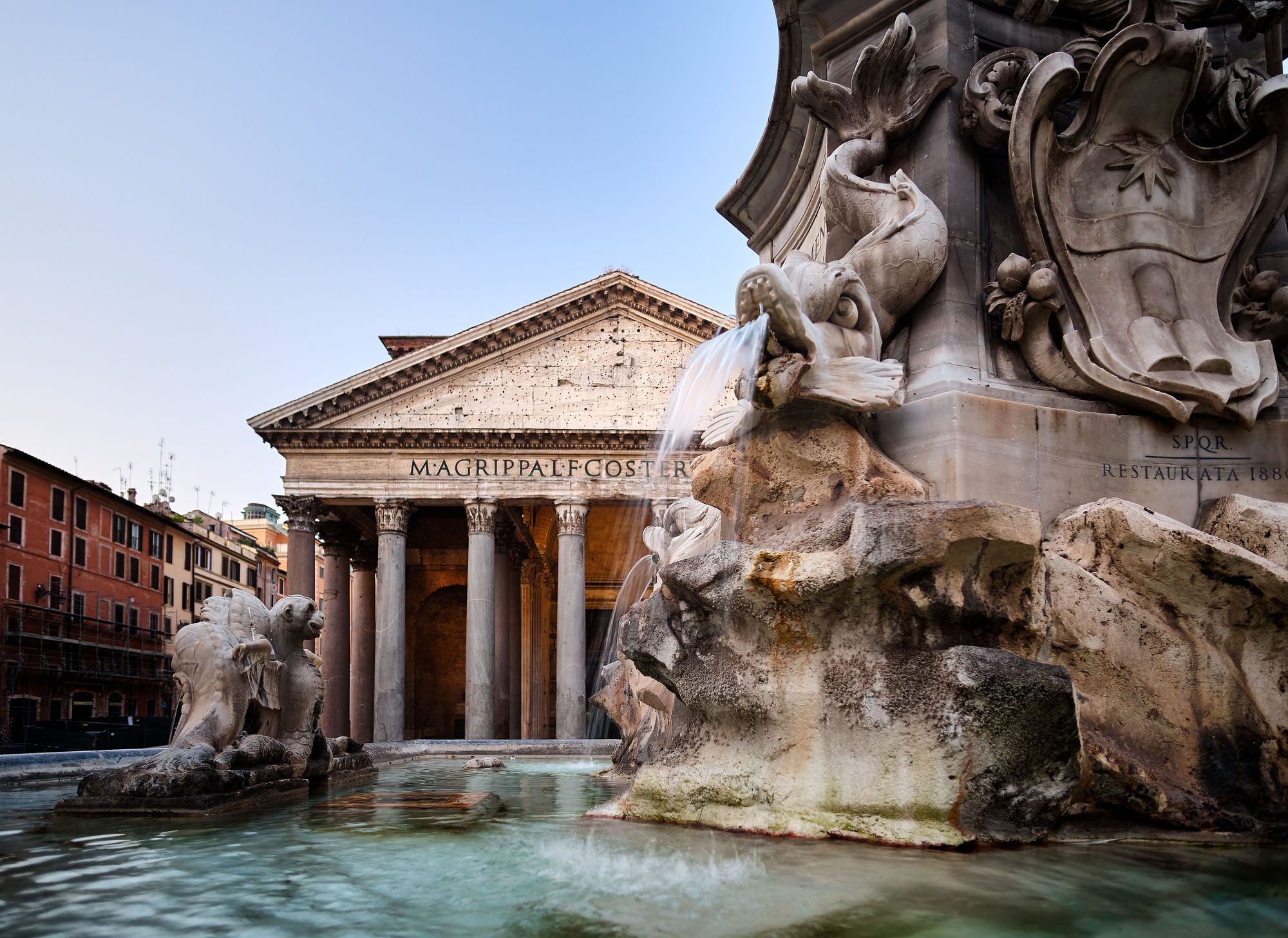
Action Steps:
So you've finished reading. What do you do now?
Reading for pleasure is great, and I wholeheartedly support it. However, I am intensely practical when I'm reading for a particular purpose. I want a result. I want to take what I've learned and apply it to my one and only life to make it better!
Because that's really what the Great Books all say. They all say: "You must change your life!" So here, below, are some suggestions for how you can apply the wisdom found in this breakdown to improve your actual life.
Please commit to taking massive action on this immediately! Acting on what you've learned here today will also help you solidify it in your long-term memory. So there's a double benefit! Let's begin...
#1: Memento Mori
Memento mori, literally translated from Latin as "remember that you must die," is an important phrase in Stoic philosophy that was meant to remind people not to get too full of themselves or waste time as if they were going to live forever.
While it may not be the cheeriest thought one could dwell upon, I absolutely recommend doing so at least occasionally, because it does come with a lot of freedom.
You may find that when you zoom out and look at your problems - even your entire life - at the proper scale, a lot of what you felt was dreadfully important and alarming ceases to trouble you so much and you can think differently about the things that used to stress you out unnecessarily.
When you remember that you must die, is it really worth spending so much of your time consumed with anger and regret? Isn't there something more helpful, more...life-affirming that you could focus on instead?
There virtually always is, and it's one of the major assertions of the Stoics that death is not nearly as fearful as never beginning to live at all. So it pays to ask yourself (perhaps even multiple times a day): "Is there life before death?"
#2: Premeditatio Malorum
This is another Latin translation that means "premeditation of evils," or taking into account the possibility of bad things occurring before they actually happen.
As Seneca said, the unexpected blow lands heaviest, but if we're at least somewhat prepared for the obstacles that Life will throw into our path, we won't be as hurt or incapacitated when they inevitably do.
One mental strategy I've found particularly helpful is to accept the absolute worst thing that could possibly happen ahead of time, so if that most horrible tragedy doesn't happen, anything not as bad as that can be dealt with relatively easily.
So the next time you're worried about an upcoming presentation, you could prepare ahead of time for the possibility that it might be so bad and so poorly received that you actually do get fired and have to go out and get another job.
That's unlikely to happen, but if you're prepared for that ahead of time ("I can always find another job"), then even if the presentation goes horribly wrong, at least you'll still be employed and now you know what to work on for next time.
#3: Take It All Away
Seneca had the right idea when he would voluntarily deprive himself of pleasures and luxuries that most wealthy people of his day took for granted.
There are certainly levels to this game, so you don't have to give up everything you love doing all at once, but maybe you practice depriving yourself of small pleasures (restrict yourself to 2 coffees a day instead of 3, replace watching television with reading a book 2-3 nights a week), and then work your way up to more difficult challenges over time.
If you take it gradually and slowly introduce yourself to more arduous restrictions, you'll notice that you don't really miss those luxuries at all, and that you're perfectly happy without them.
#4: Control the Controllables
One of the major imperatives of Stoicism is to control what you can control, and leave the rest to Fortune or Fate.
Relinquish any other thoughts besides doing your absolute best to perform those right actions that you are in control of, and allow the results of those actions to take care of themselves.
The best you can do is literally the best you can do, and even great coaches like John Wooden used to say that if you know that you've done your absolute best, then there's nothing the scoreboard can ever say that will make you a loser.
One thing that doesn't get enough play in discussions about Stoicism is the fact that there's a third category here: those things you can influence, but not directly control. For example, you can influence how people treat you based on how you treat them, and I think that's important to recognize.
You can also stack the probability of success in your favor by doing things like making more cold calls than the other salespeople in your office or performing more reps in the gym before a contest. But just realize that sometimes, people are just jerks, customers just have no interest, and judges may decide that someone else deserves it more.
#5: Amor Fati
This is another Latin translation and it means "love of fate." It was one of Nietzsche's favorite expressions, and he explained its significance in Thus Spoke Zarathustra.
Basically to love one's fate is to accept everything, and affirm what's happened in your life such that "one wants nothing to be different, not forward, not backward, not in all eternity."
Practice accepting everything that happens to you as if you chose it, no matter what. This is probably one of the hardest philosophical exercises anyone could ever undertake, but the freedom one gains from successfully performing it is simply unfathomable.
Some would argue that it would take an almost inhuman strength of character to be able to do this, and I'm not sure they're wrong. It might even be harder than I'm making it sound. I mean, accept everything no matter how difficult, how awful, how unimaginably unfair?
Yes. Accept it all. Every bit of it.
This is something that most people will have to work up to, and no one could possibly expect you to become some perfect "Stoic sage" just like that, but it's a worthy ideal nonetheless.
It also means that if there's nothing that could possibly happen to you that you couldn't somehow, eventually accept, then there's literally nothing you wouldn't be able to overcome.
"The path to success is to take massive, determined action."
-Tony Robbins


About the Author:
Lucius Annaeus Seneca (often known simply as Seneca or Seneca the Younger; ca. 4BC–65AD) was a Roman Stoic philosopher, statesman, and dramatist of the Silver Age of Latin literature. He was a tutor and later advisor to emperor Nero, who later forced him to commit suicide for alleged complicity in the Pisonian conspiracy to have him assassinated.
Additional Resources:
Seneca | Stanford Encyclopedia of Philosophy
The World's Most Interesting Stoic | The Daily Stoic
The 8 Principles of Stoicism | ThoughtCo
More Stoic Wisdom | Jon Brooks - The Stoic Handbook
How to Read Seneca | YouTube - The Daily Stoic
This Book on Amazon:
If You Liked This Book:
Letters from a Stoic, by Seneca
On the Shortness of Life, by Seneca
Meditations, by Marcus Aurelius
Discourses and Selected Writings, by Epictetus
Philosophy as a Way of Life, by Pierre Hadot
The Therapy of Desire, by Martha C. Nussbaum
Discipline is Destiny, by Ryan Holiday
Discipline Equals Freedom, by Jocko Willink
How to Think Like a Roman Emperor, by Donald Robertson

